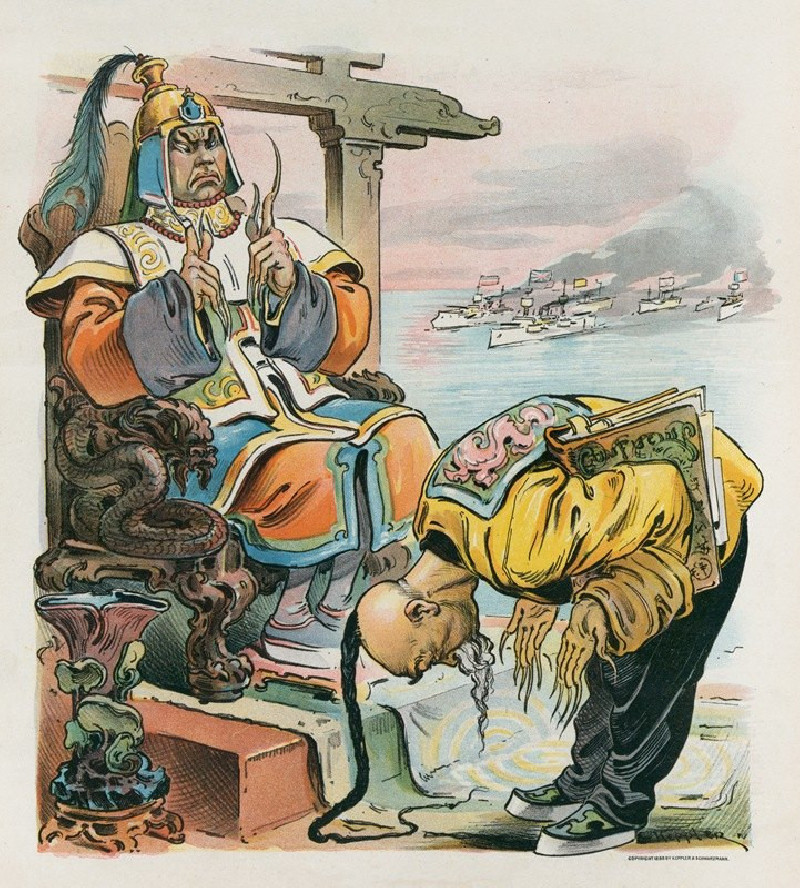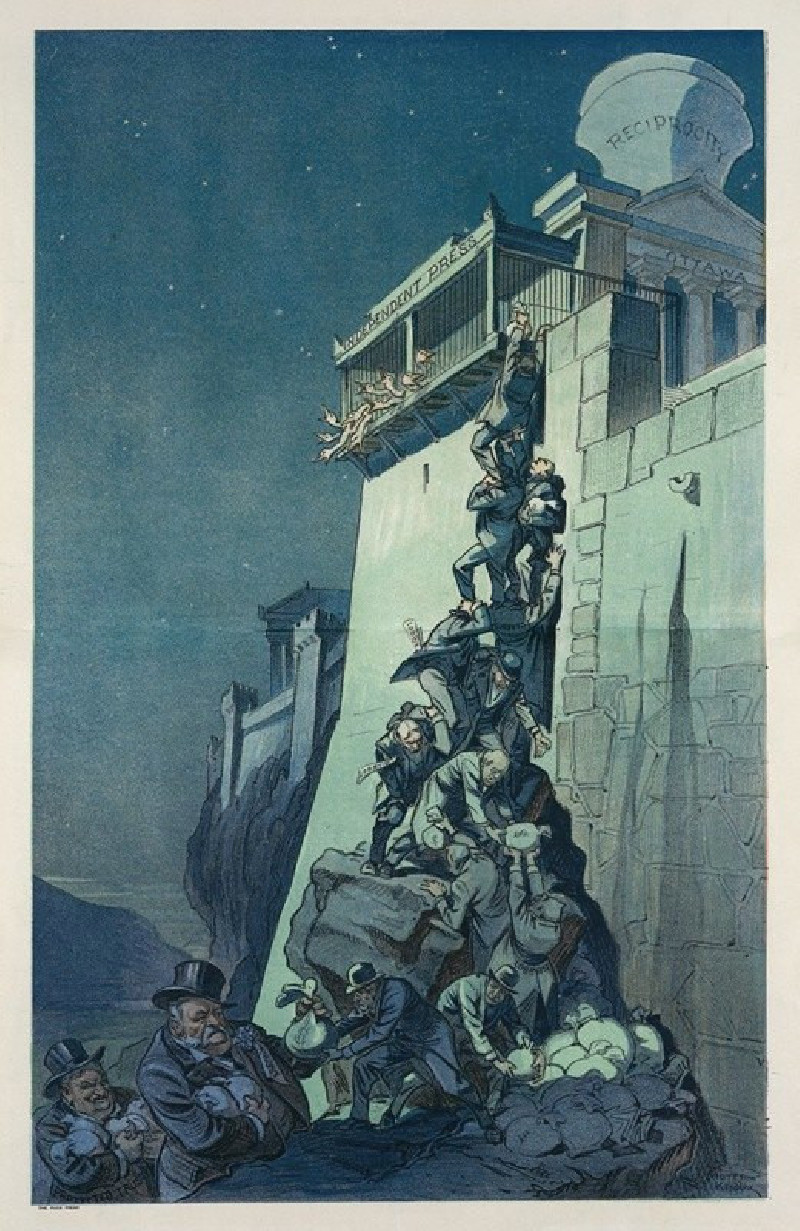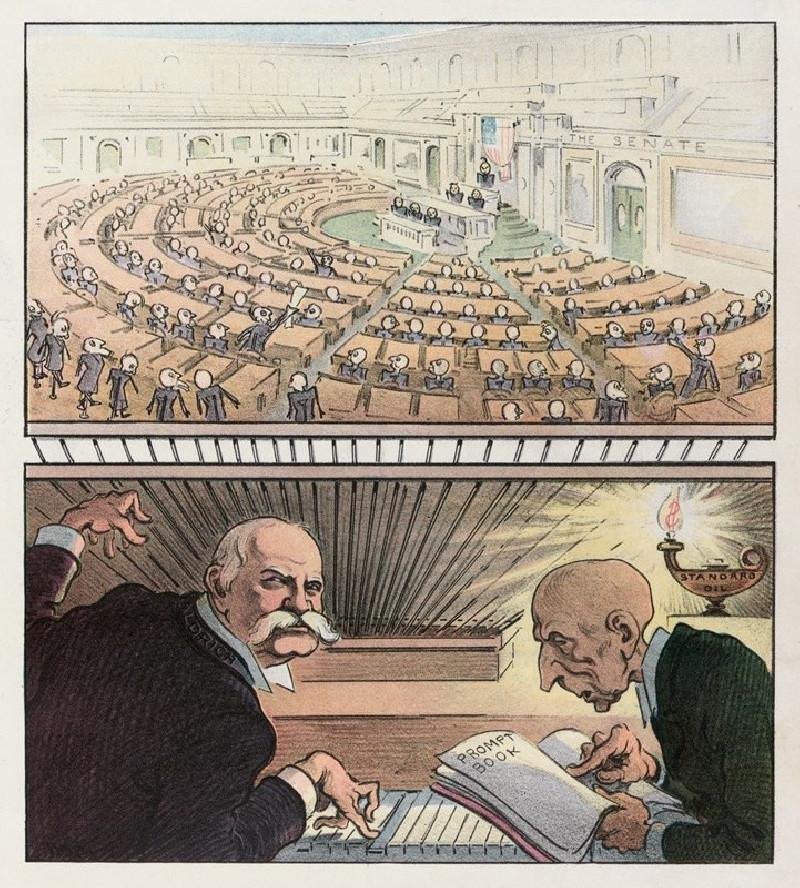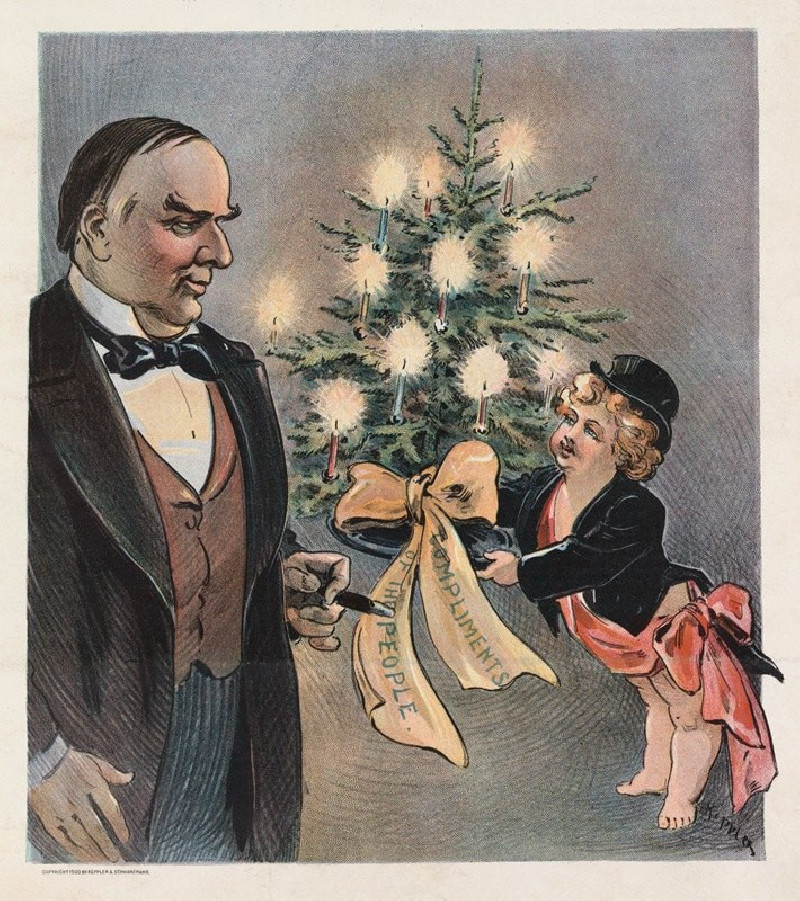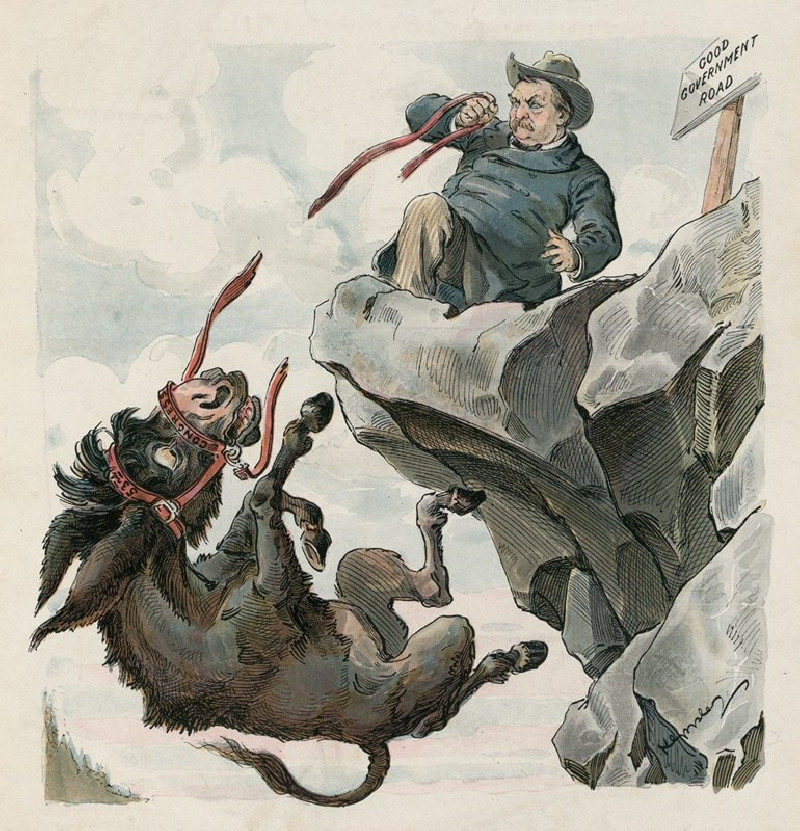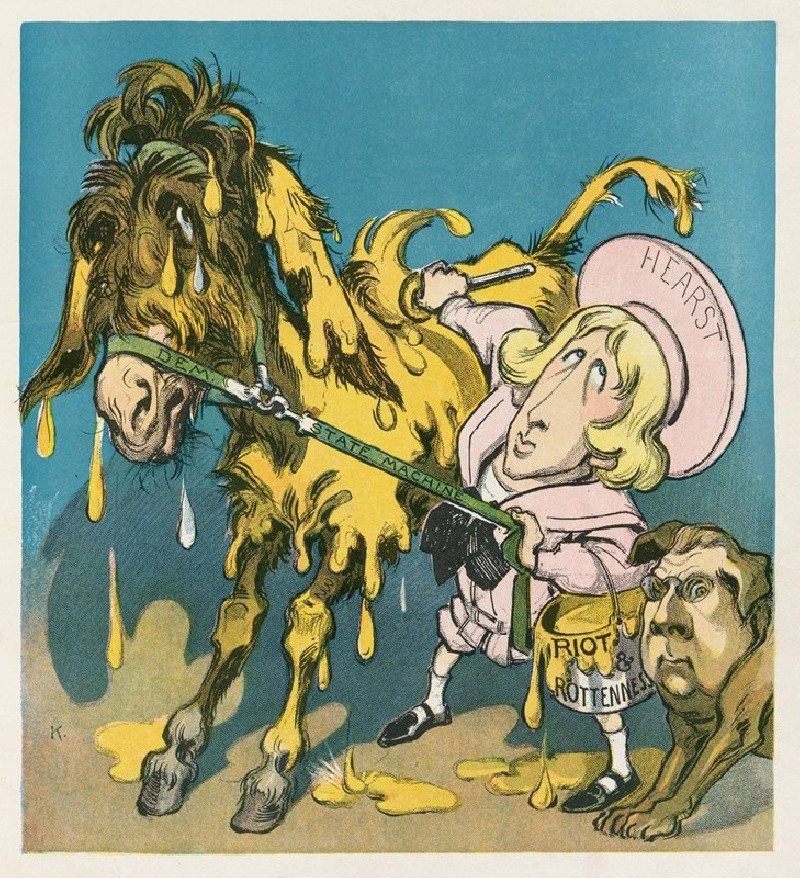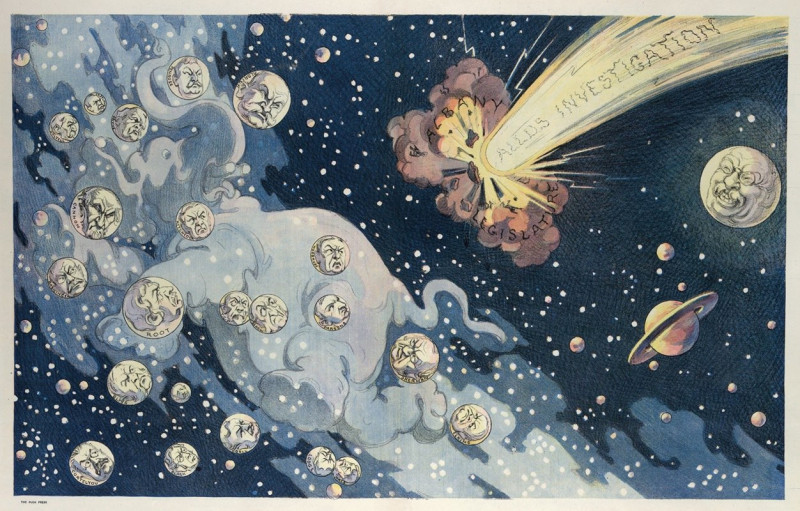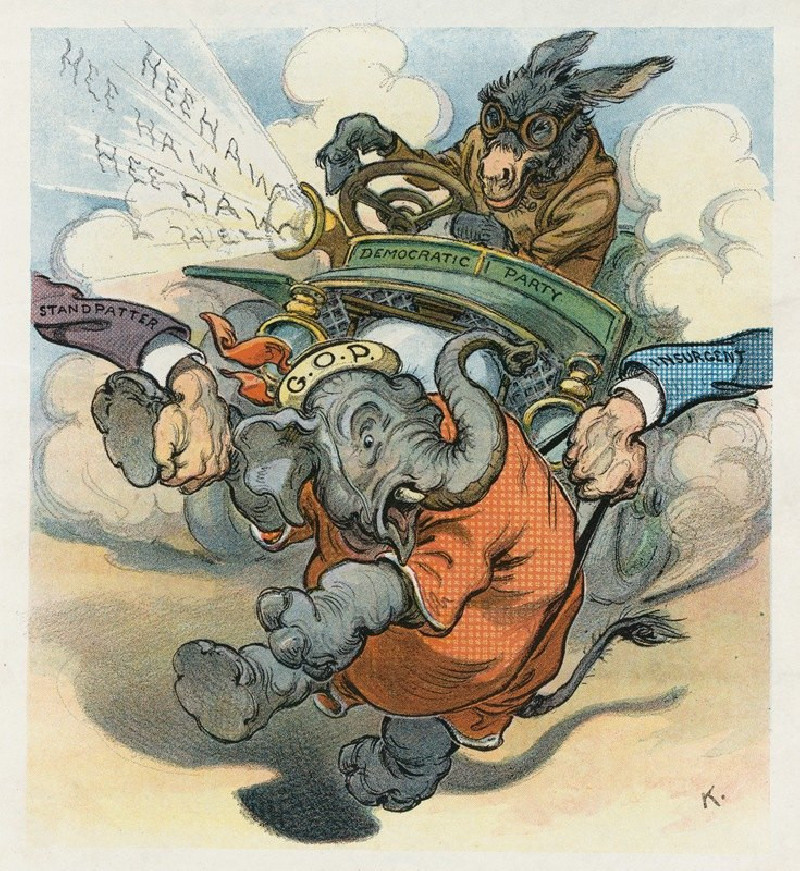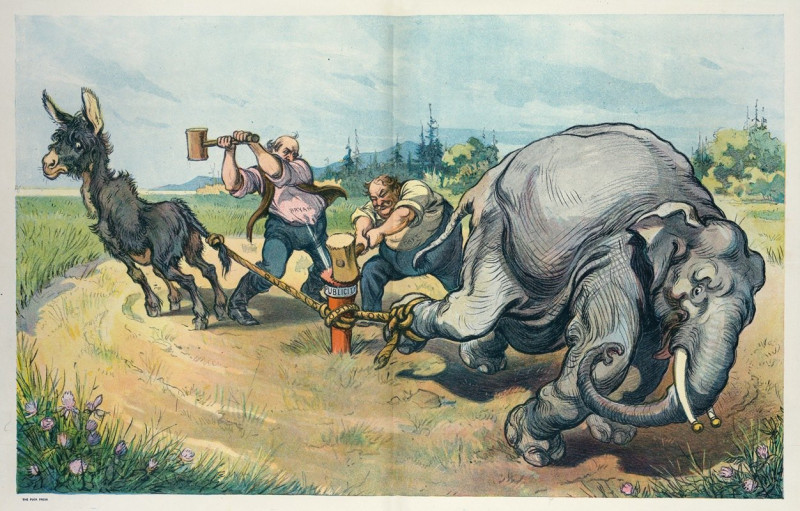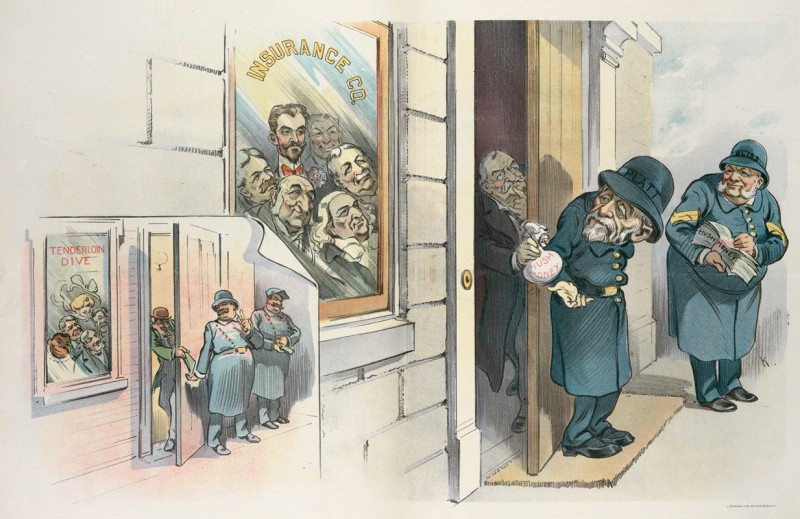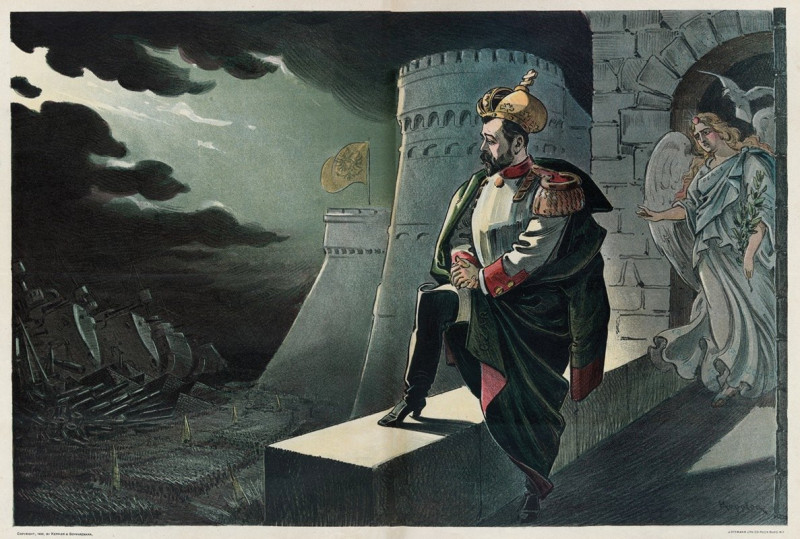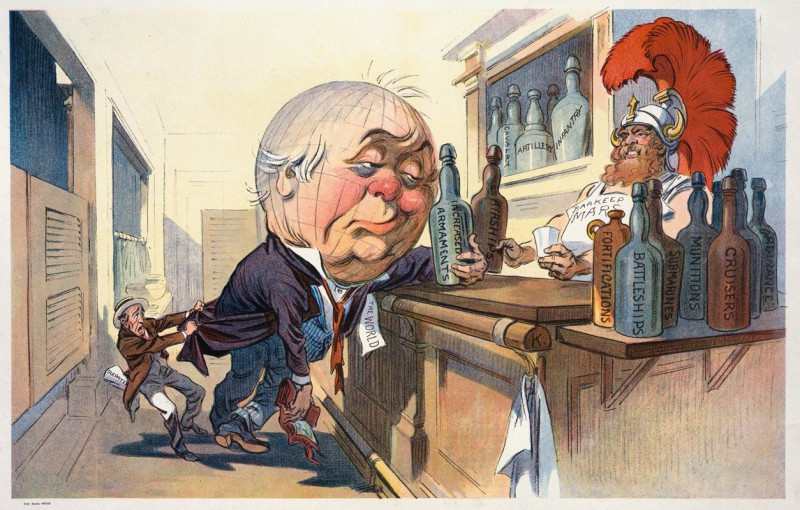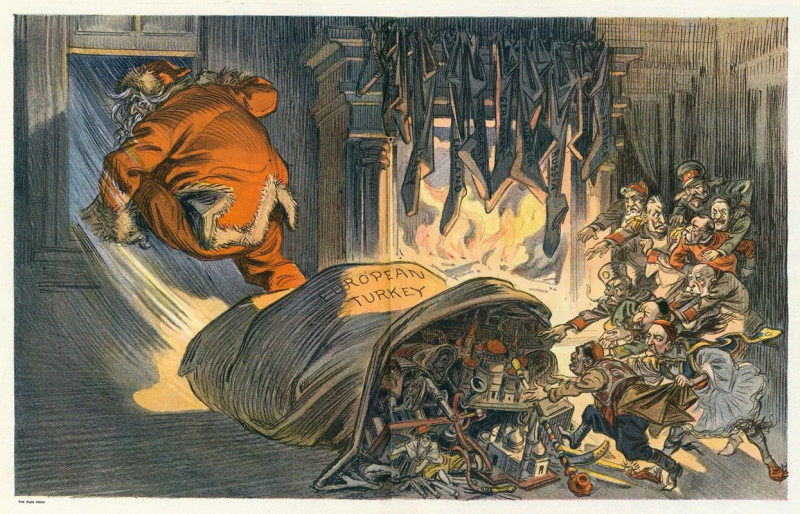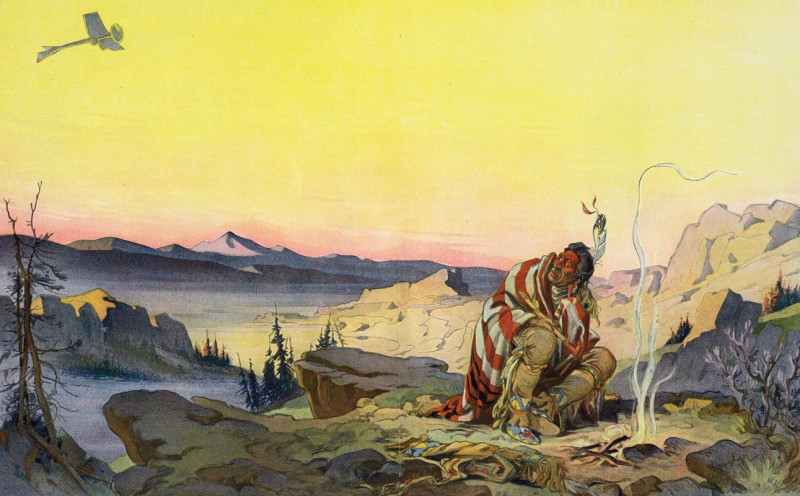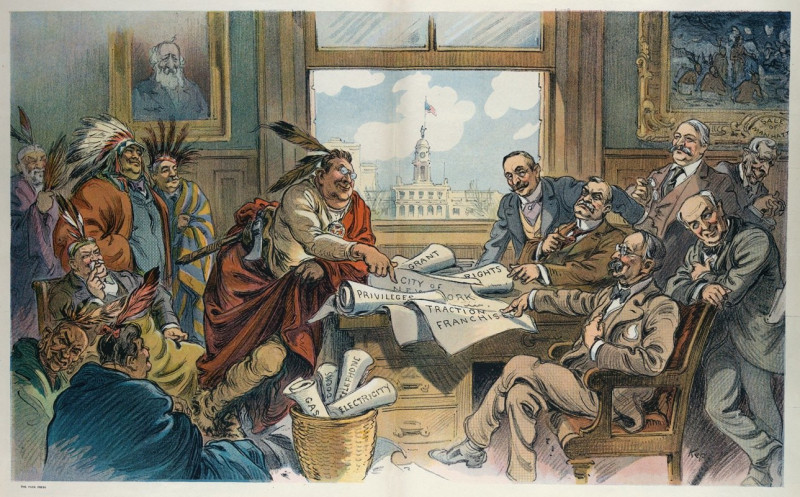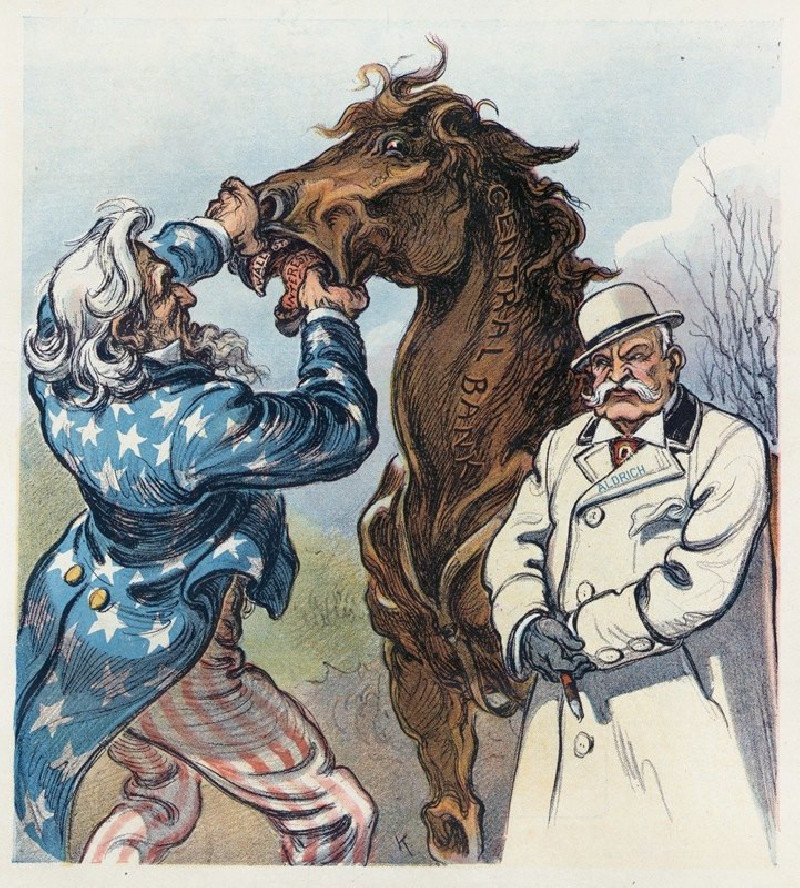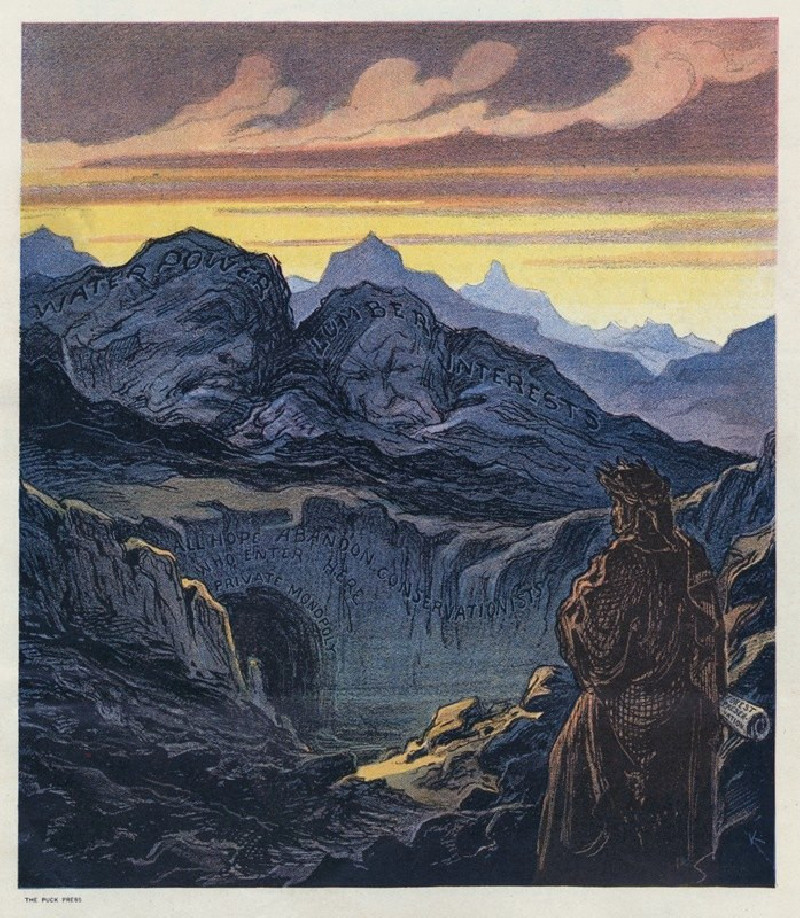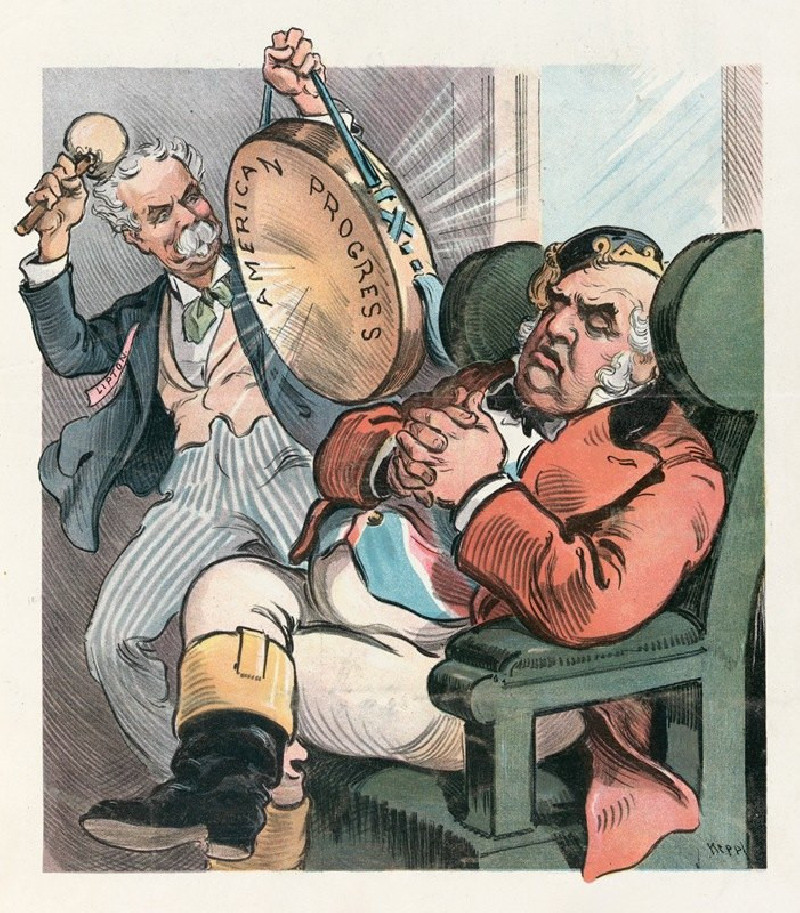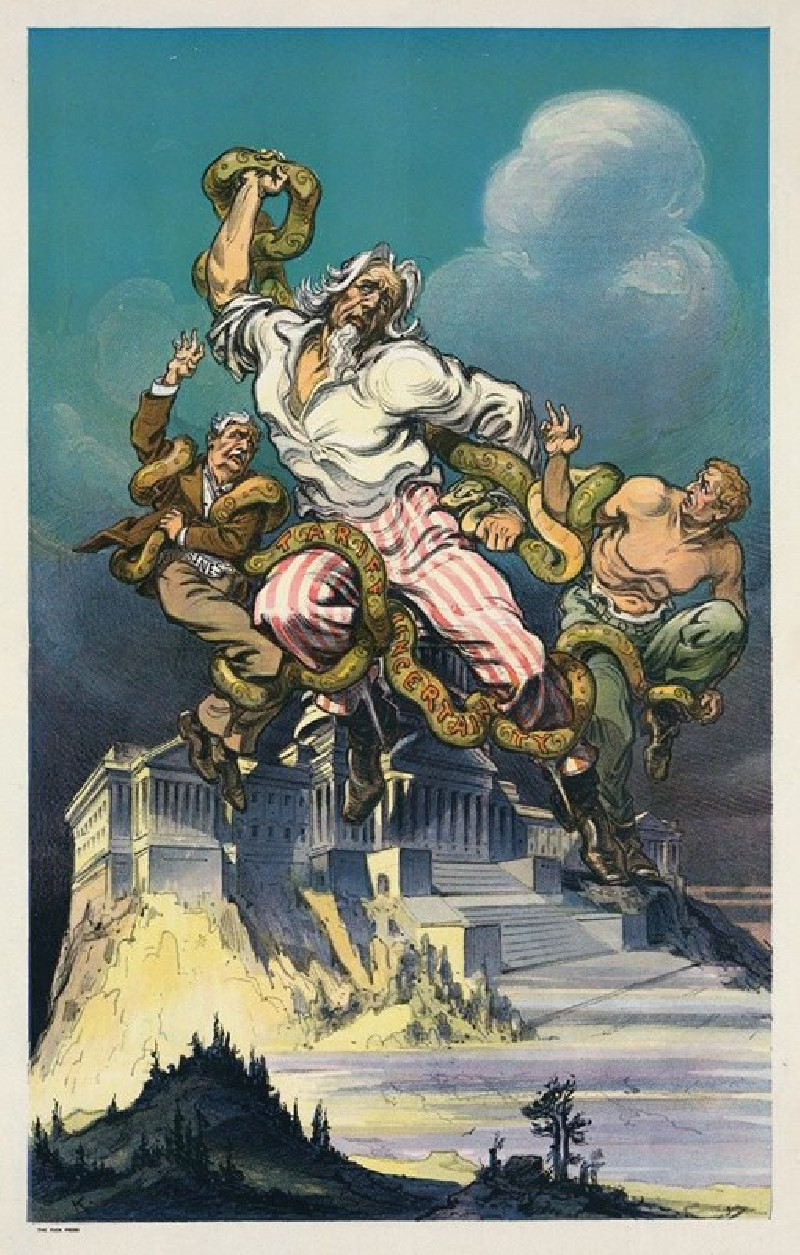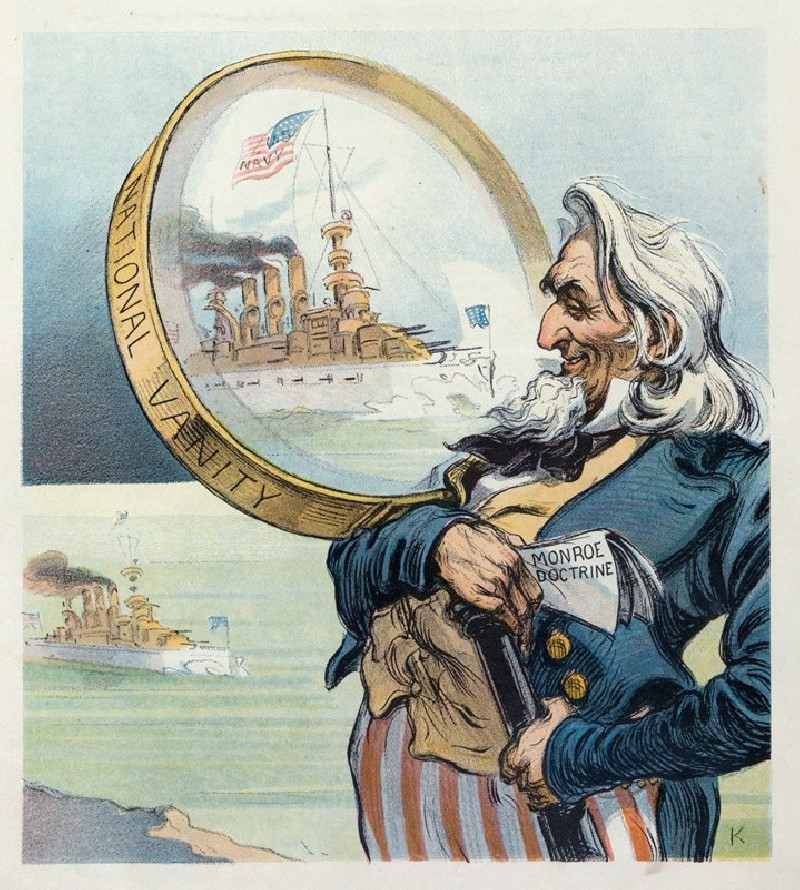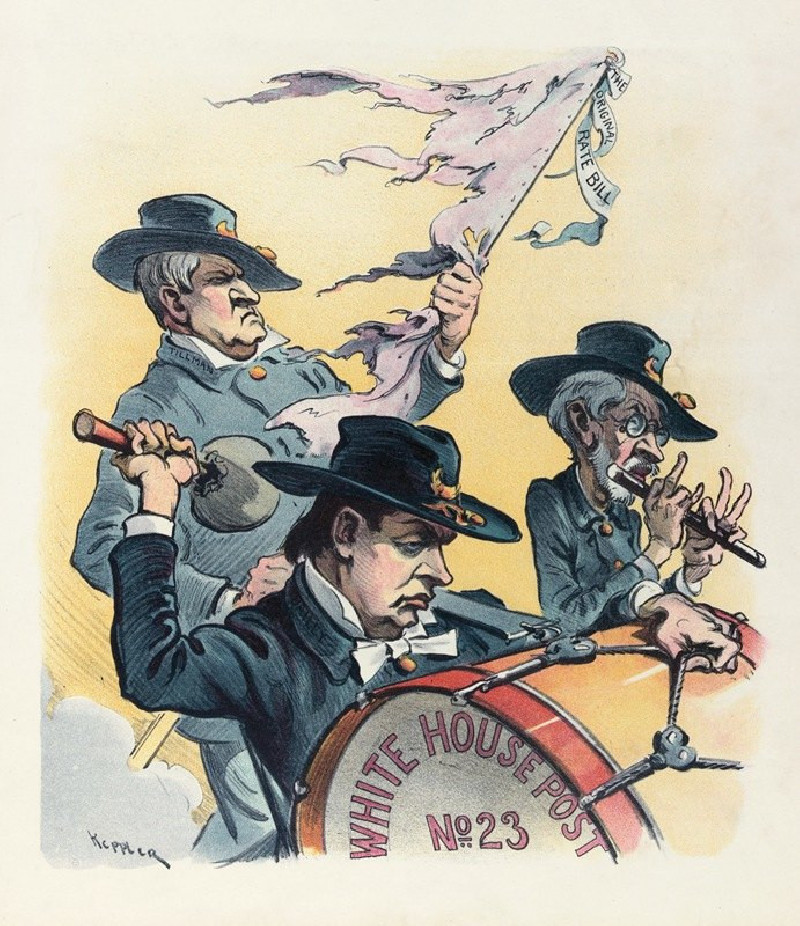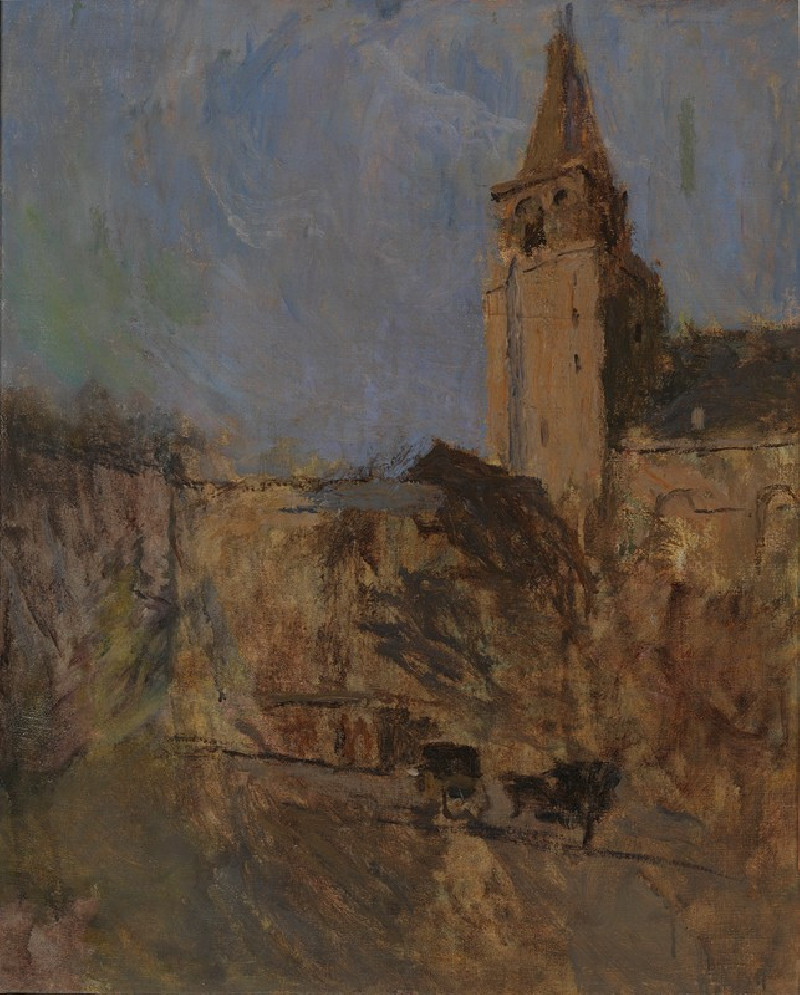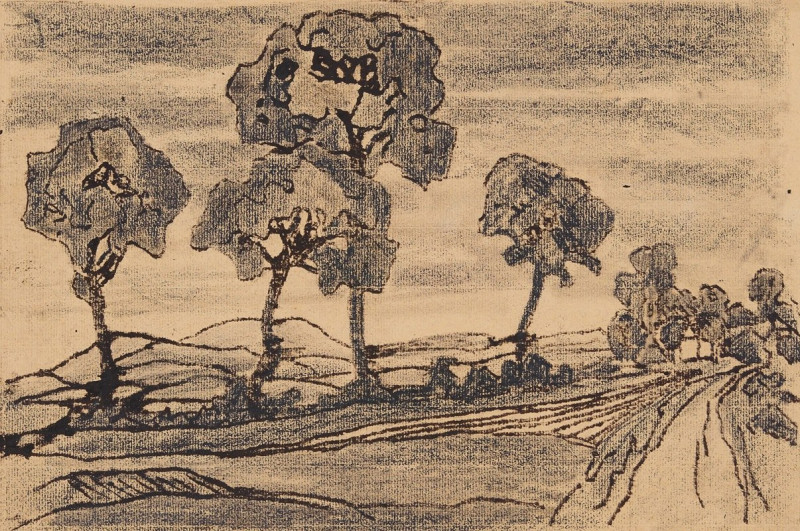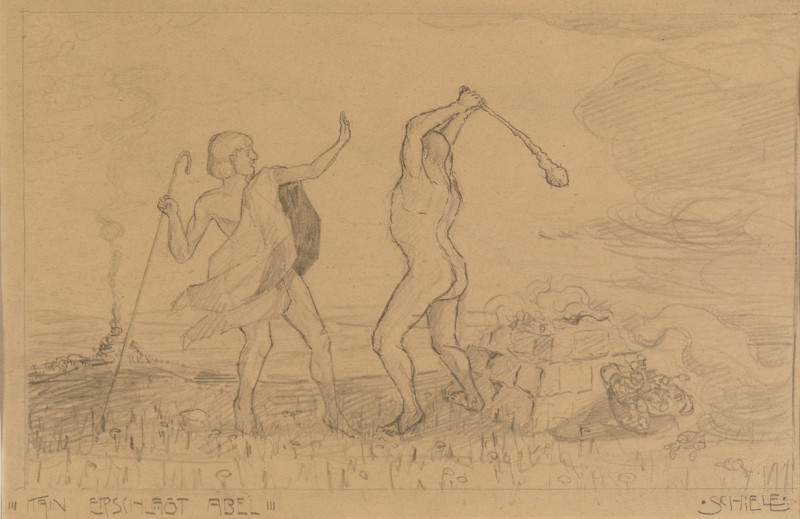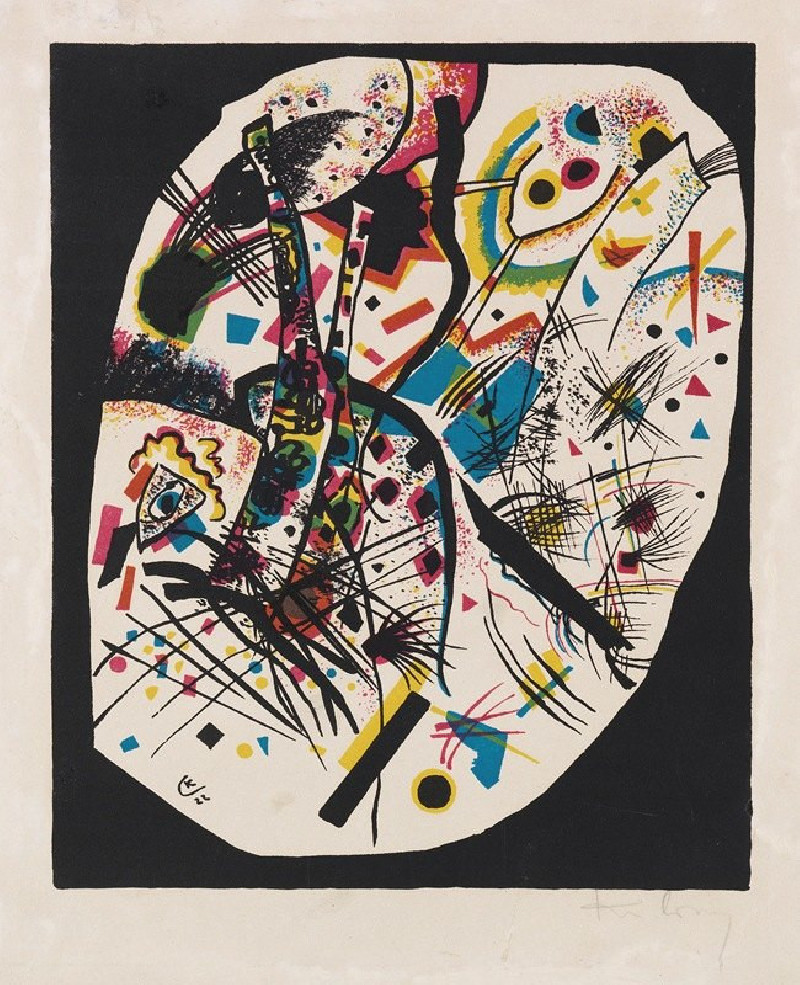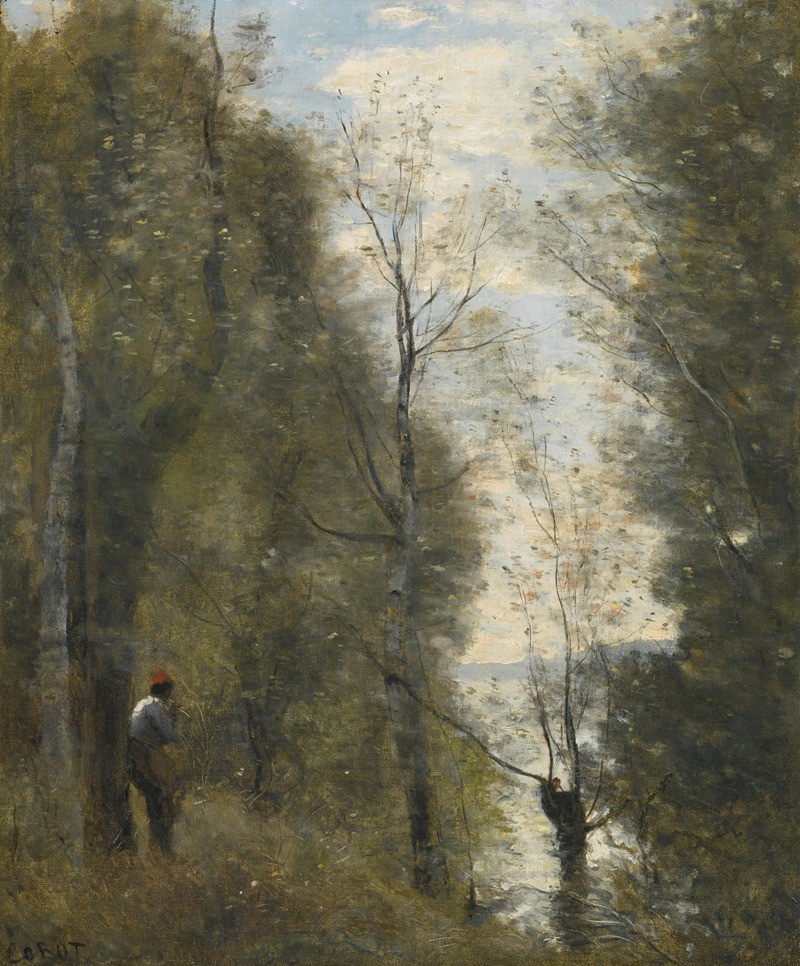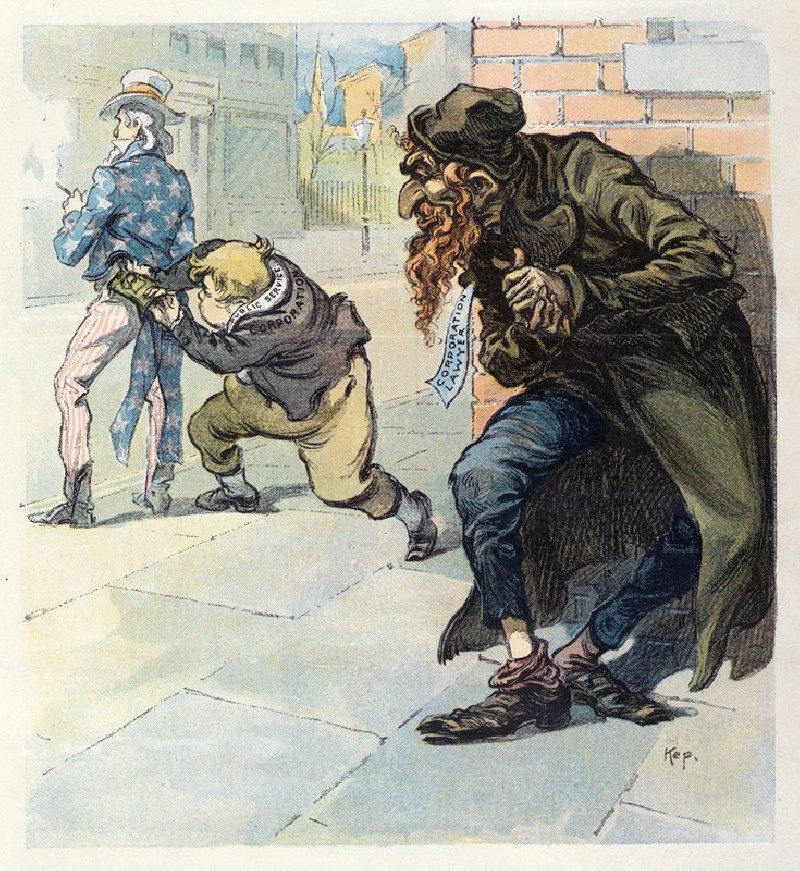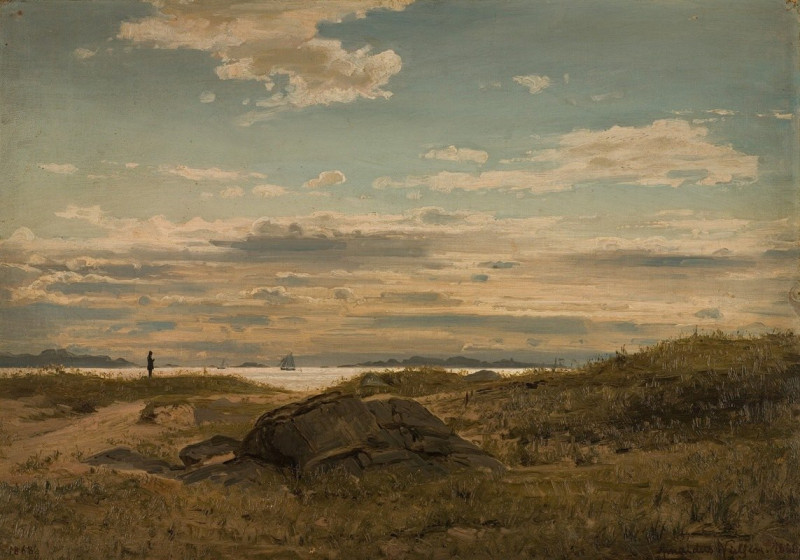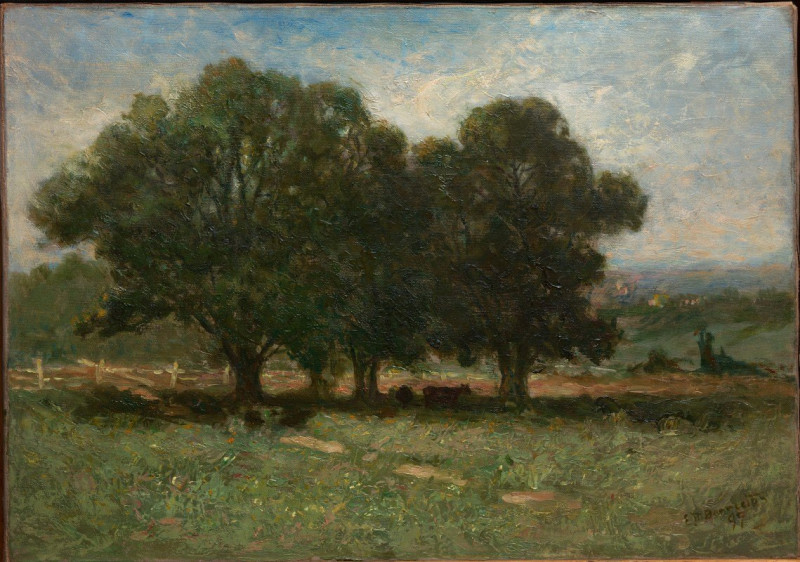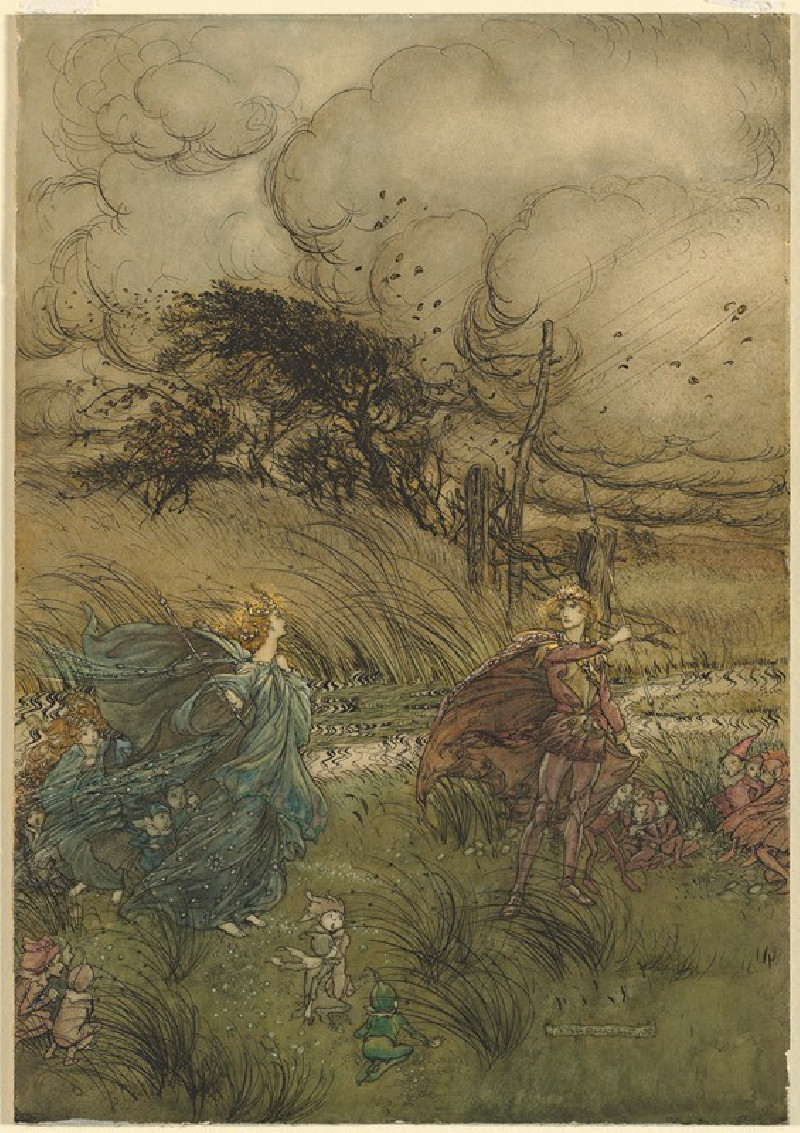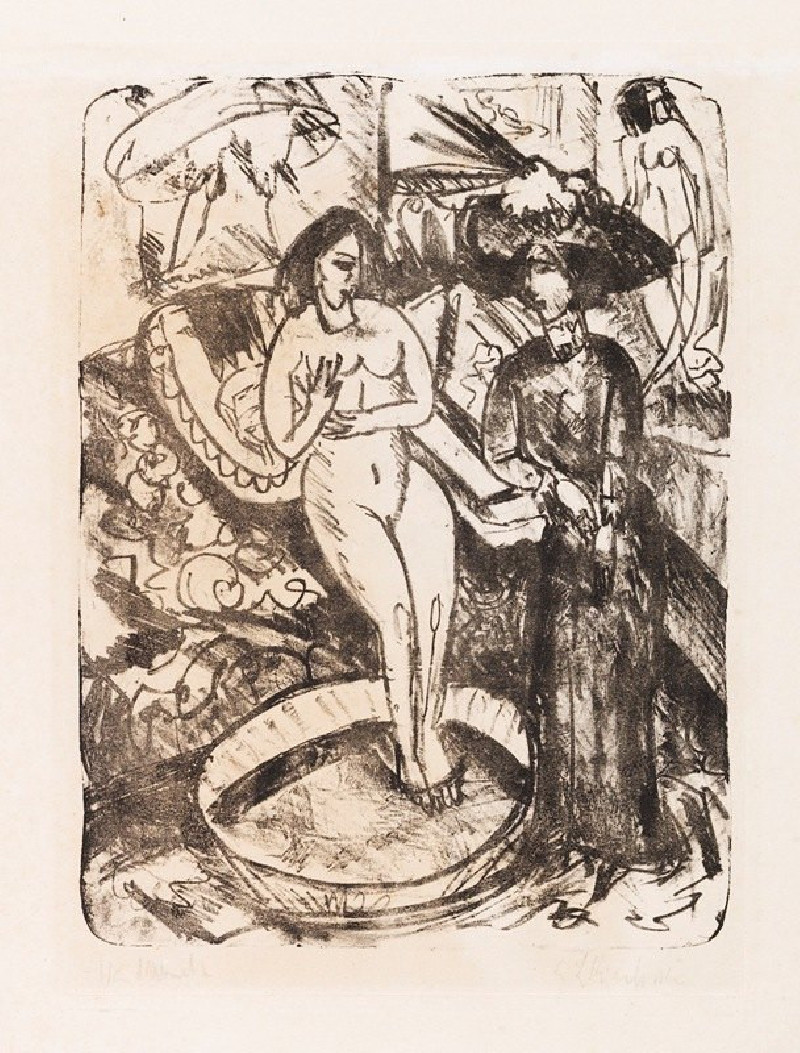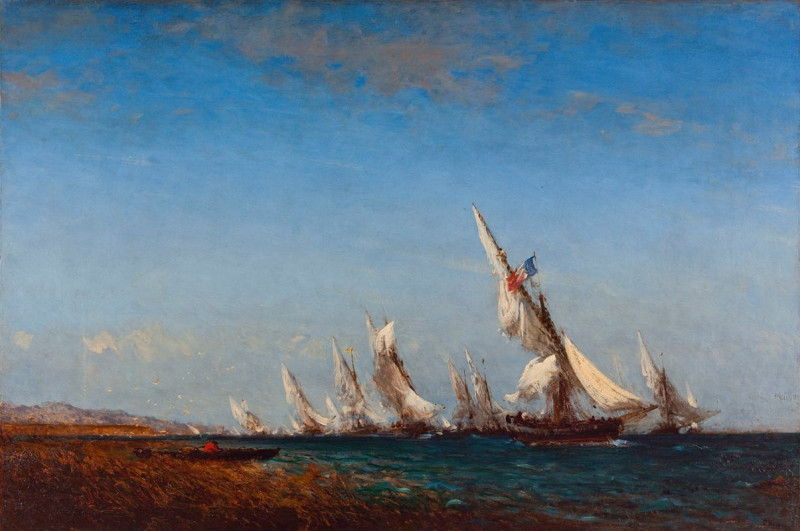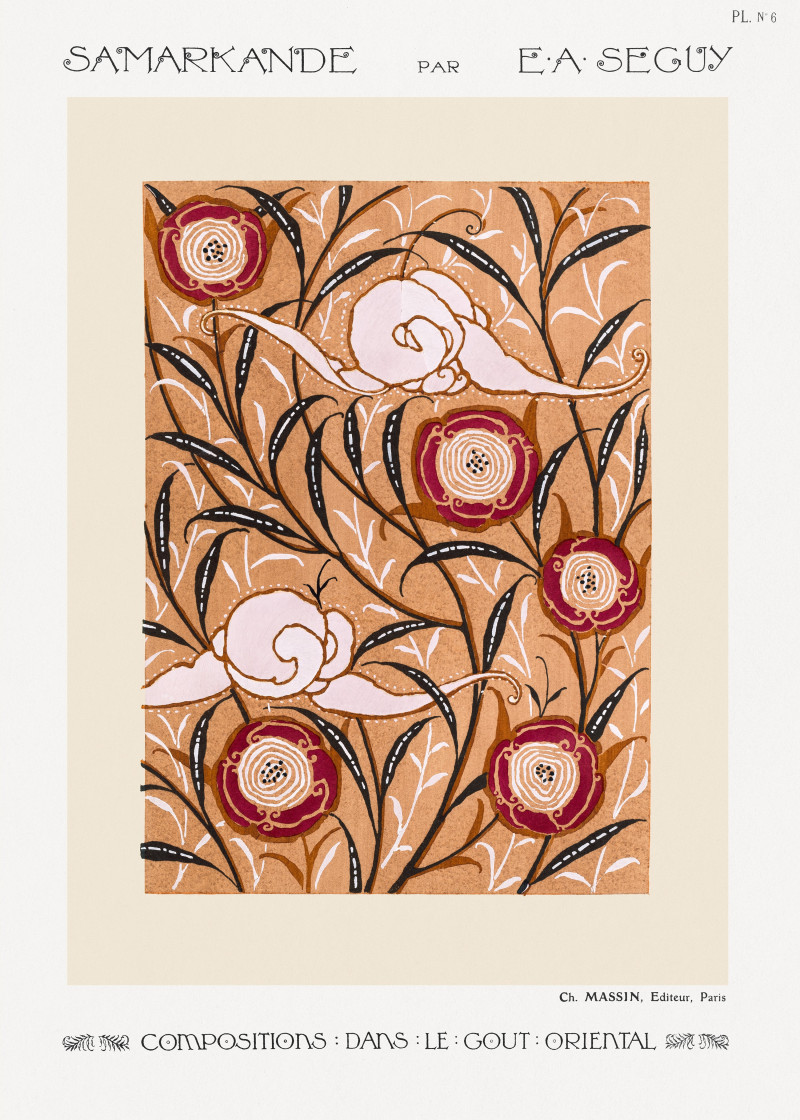An unforeseen emergency (1898)
Technique: Giclée quality print
Recommended by our customers
More about this artwork
Artist: Udo Keppler (1872–1956)Date: 1898“An Unforeseen Emergency” is a vivid and expressive painting by American cartoonist Udo Keppler. This work is an example of Keppler’s characteristic style, which often included satirical and political commentary through striking, colorful imagery. In this painting, Keppler captures a moment of dramatic irony and cultural interaction.The scene depicts two contrasting figures against a backdrop that suggests a location in East Asia, identifiable by the architectural details and distant ships that resemble a naval fleet. The central figure, dressed in traditional East Asian regalia, sits regally on a throne with a composed yet stern expression, holding what appears to be a scepter. His attire and demeanor suggest he is a person of significant status, possibly a ruler or an important official.In stark contrast, the figure before him, portrayed in a yellow robe and bowing deeply, presents an expression of urgency or distress. This character seems to be a servant or advisor, caught in a moment of sudden misfortune, as suggested by the title of the painting. Interestingly, the servant’s head is lowered into a vessel, which traditionally might be used for washing or holding water, indicating a mishap or a desperate situation needing immediate attention.The painting is framed by various decorative elements, including a dragon entwined around the base of the throne and elaborate vessels, amplifying the scene's dramatic and cultural undertones. The inclusion of a follwing sea scene subtly underscores the theme of unexpected crises, possibly hinting at broader political or social commentary relevant to the era’s geopolitical climate.
Delivery
Returns
Udo J. Keppler, since 1894. known as Joseph Keppler, Jr., was an American political cartoonist, publisher, and Native American advocate. The son of cartoonist Joseph Keppler (1838–1894), who founded Puck magazine, the younger Keppler also contributed to cartoons, and after his father's death became co-owner of the magazine under the name Joseph Keppler. He was also a collector of Native American artifacts.

